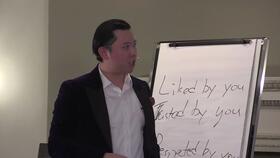How to Make Money on Foreclosed Homes
Investing in foreclosed homes can be a lucrative venture if done correctly. These properties, often sold at a fraction of their market value, present a unique opportunity for investors to make a profit. In this guide, we will explore various strategies to help you make money on foreclosed homes.
Understanding Foreclosed Homes

Foreclosed homes are properties that have been seized by the lender due to the borrower’s failure to meet mortgage payments. These homes are then sold at auction or through a real estate agent to recover the outstanding debt. It’s important to understand the different types of foreclosures and how they can affect your investment strategy.
| Type of Foreclosure | Description |
|---|---|
| Pre-Foreclosure | When a homeowner is behind on mortgage payments but has not yet been foreclosed upon. |
| Foreclosure Sale | The auction of a foreclosed property where the highest bidder purchases the property. |
| Short Sale | When a homeowner sells the property for less than the amount owed on the mortgage. |
Identifying Profitable Foreclosed Homes

Not all foreclosed homes are profitable investments. To identify the best opportunities, consider the following factors:
- Location: Properties in desirable neighborhoods or areas with potential for growth are more likely to yield higher profits.
- Condition: The condition of the property can significantly impact your investment. Consider whether the property requires repairs or if it’s in move-in condition.
- Market Value: Research the current market value of similar properties in the area to determine if the foreclosure price is a good deal.
Strategies for Making Money on Foreclosed Homes

Once you’ve identified a profitable foreclosed home, there are several strategies you can employ to maximize your returns:
1. Flipping
Flipping involves purchasing a foreclosed home, making necessary repairs, and then selling it at a higher price. This strategy requires a significant amount of capital and expertise in home renovation. However, it can yield substantial profits if executed correctly.
2. Renting
Instead of flipping, you can rent out the foreclosed home. This strategy requires less capital and can provide a steady stream of income. However, it’s important to consider the costs of property management and maintenance.
3. Fix and Flip
Similar to flipping, the fix and flip strategy involves purchasing a foreclosed home, making repairs, and then selling it. However, this strategy focuses on smaller, more affordable properties that can be sold quickly.
4. Wholesale
Wholesaling involves finding a foreclosed home, negotiating a purchase price, and then selling the property to another investor at a higher price. This strategy requires strong negotiation skills and a good understanding of the market.
Legal Considerations
When investing in foreclosed homes, it’s crucial to understand the legal implications. Here are some key considerations:
- Due Diligence: Conduct thorough research on the property, including its legal status, liens, and any potential environmental issues.
- Title Insurance: Purchase title insurance to protect yourself from any legal disputes or claims on the property.
- Contractual Agreements: Ensure that all contracts and agreements are legally binding and that you understand the terms and conditions.
Conclusion
Investing in foreclosed homes can be a rewarding way to make money, but it requires careful planning and research. By understanding the different types of foreclosures, identifying profitable properties, and employing effective strategies, you can increase your chances of success. Always consult with a real estate professional or attorney to ensure that you’re making informed decisions.